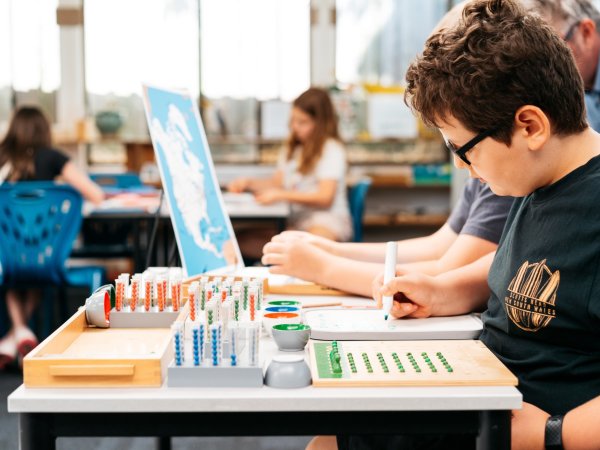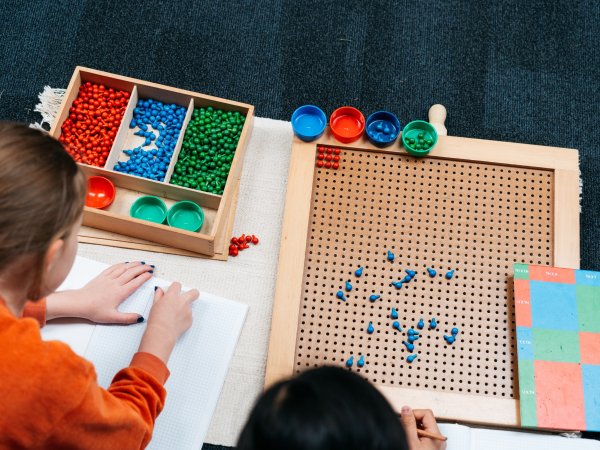Ages 6 – 12 Years Old
The education of the Primary Montessori student is divided into two stages: the first of these is for children in Years 1 to 3 (aged 6-9) and the second for children in Years 4 – 6 (aged 9-12). At Northside Montessori School we follow the NESA curriculum common to all Australian Primary Schools. However, the students are not limited to this curriculum as we also follow our Montessori lessons using the Montessori philosophy and materials.
The Primary Program builds upon and continues the pre-primary experience using similar Montessori materials in more advanced and more abstract ways. The child is now interested in how and why certain phenomena occur and the Montessori classroom is perfect to meet this need.
Knowledge is presented as part of a larger narrative that reveals the origins of the earth, life, human communities and history. Formal scientific language and zoology, botany, anthropology, geography, geology is introduced in context, respecting the child’s interests and intelligence.
Using connected narratives, the student is introduced to subjects in a clear, concrete way, often engaged in content not typically introduced until High School. Lessons are conducted one on one or in small groups where interaction, hands on exploration and discussion is encouraged.
Advanced mathematical concepts, algebra and geometry are introduced using the specially designed Montessori materials.
Using these materials, the student becomes a proficient reader who understands grammar and studies the origin of our language. Work with different genre and interpretive reading of literature also takes place and the student progresses towards conventional spelling and use of punctuation. Research skills are also emphasised so that students can undertake student-generated research using books and technological sources.
Primary students are directly involved in planning excursions or incursions as well as ‘going out’, an excursion chosen by the student, as a way of developing knowledge and skills that align real-life experiences with school-based learning. These may also include inviting experts to visit the school.
The student in a Montessori Primary classroom is independent, self-directed and has a love of learning that will continue throughout their lives.



